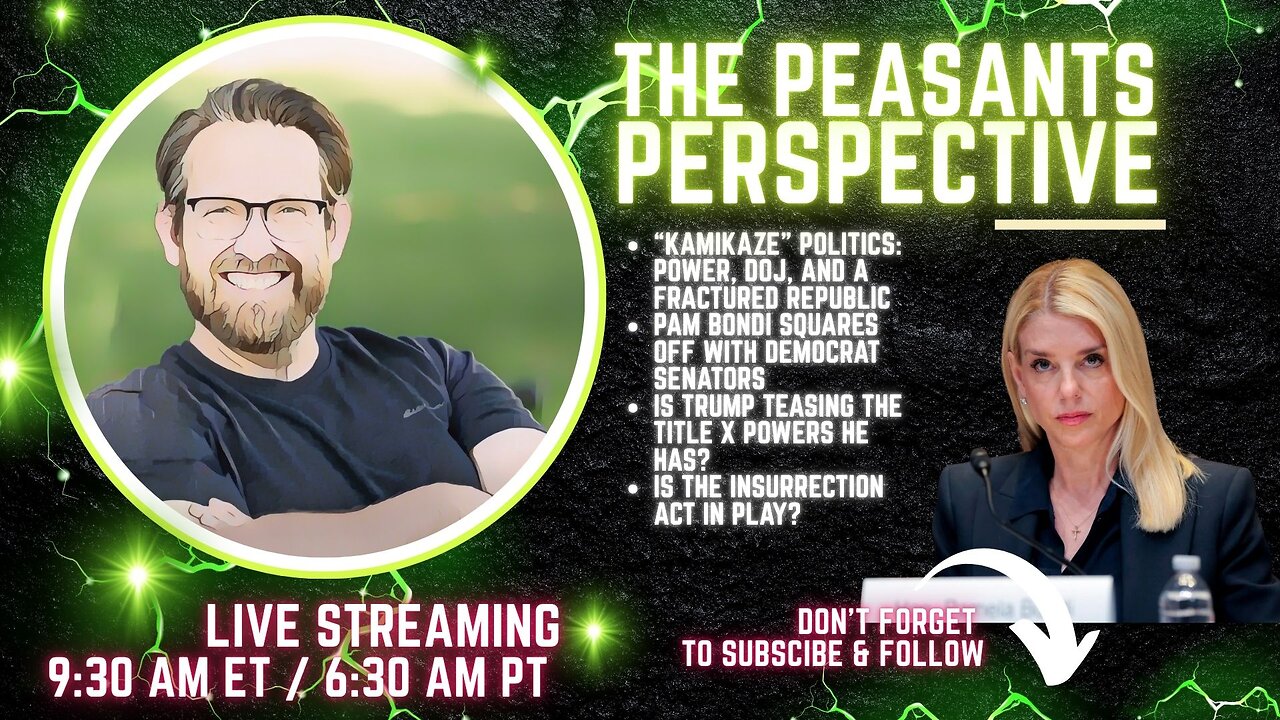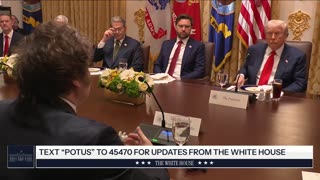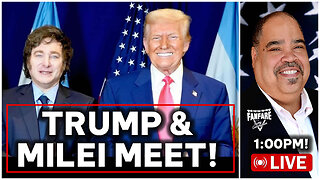Premium Only Content

“Kamikaze” Politics: Power, DOJ, and a Fractured Republic
0:54 Cold Open & Show Banter
2:25 Senate Fireworks Over Spying Claims
6:03 Power vs Money: Parties’ Motives
9:03 Trump’s “Kamikaze” Frame
12:10 Shutdown Standoff & Political Costs
19:50 Prosecutor Texts and Bias
22:56 Senators’ Phone Records Subpoenaed
27:29 Vengeance vs Accountability Debate
34:10 “Restricted Access” Cover‑Up Claims
40:36 Media Spin: Subpoena vs Wiretap
47:00 Legal Predicate and Overreach Risks
52:30 Separation of Powers Violations
58:11 Whistleblowers, Burrowed Operatives
1:04:15 Wray’s Timing and Credibility
1:10:24 Pam Bondi vs Senate Democrats
1:19:58 Epstein, Evidence, and Deflection
1:27:10 “No One Above the Law” Exchanges
1:33:44 Private Segment Tease
Power doesn’t just shape outcomes—it scripts the story. Today we unpack a combustible mix of Senate fireworks, DOJ process, and media framing after revelations that eight sitting senators’ phone metadata was subpoenaed and tucked into restricted-access repositories. We walk through the legal hair-splitting—warrant versus subpoena, content versus toll records—and ask whether the predicate behind these steps can bear the constitutional weight. When oversight targets the overseers, how does the separation of powers hold?
You’ll hear sharp exchanges featuring Pam Bondi, Ron Johnson, Eric Schmidt, Lindsey Graham, and media voices defending or disputing the term “spying.” We examine claims that prior leadership buried sensitive records behind internal firewalls, contrast “no one is above the law” rhetoric with real barriers to accountability, and highlight the quiet force multipliers: classification, policy carve-outs, and access controls that can outlast any administration. The conversation widens to border surges and Medicaid strain, urban crime controversies, and allegations of intelligence community gatekeeping around election vulnerabilities—mapping how process, narrative, and incentives collide.
The through-line is trust. Institutions argue this is normal investigative work. Lawmakers say the methods undermine the republic’s checks and balances. Citizens are left parsing language games while surveillance tools grow more powerful. We close with a sober look at digital IDs and social credit systems: when every action is scored, access to travel, finance, and speech can become conditional. If reform matters, it starts with clean predicates, auditable subpoenas, enforceable guardrails, and equal standards—whoever holds power.
If this resonates, share it with someone who cares about due process and real oversight. Subscribe for more candid breakdowns, and leave a review with the one reform you’d implement first.
Support the show
buymeacoffee.com/peasant
-
 LIVE
LIVE
Right Side Broadcasting Network
3 hours agoLIVE: President Trump Participates in the Charlie Kirk Medal of Freedom Ceremony - 10/14/25
5,769 watching -
 UPCOMING
UPCOMING
Dr. Drew
2 hours agoThe Quartering: Letitia James Just Found Out "No One Is Above The Law" In Spectacular Display Of FAFO w/ Viva Frei – Ask Dr. Drew
1.51K -
 1:36:51
1:36:51
The Quartering
2 hours agoThe End Of Trans Madness, Alex Jones Loses Final Plea, Rock Bottom For Star Trek & More
83.7K22 -
 36:53
36:53
Stephen Gardner
2 hours ago🔥LEAKED! Trump's Secret ANTIFA Takedown Plan EXPOSED!!
4.09K4 -
 1:20:21
1:20:21
The Confessionals
3 hours agoInside the Invisible War (Demons Don't Fight Fair)
2491 -
 1:07:45
1:07:45
The White House
3 hours agoPresident Trump Participates in a Bilateral Lunch with the President of the Argentine Republic
24.6K13 -
 2:13:35
2:13:35
Barry Cunningham
3 hours agoBREAKING NEWS: PRESIDENT TRUMP AND PRESIDENT OF ARGENTINA JAVIER MILEI MEET
17.6K4 -
 5:22
5:22
Michael Heaver
4 hours agoFarage Issues URGENT Warning To Britain
4.13K2 -
 1:22:01
1:22:01
Sean Unpaved
5 hours agoMNF Madness, CFB Week 7 Rewind, & MLB's ALCS & NLCS Playoff Fire!
26.7K -
 1:02:05
1:02:05
DeVory Darkins
3 hours ago $32.19 earnedTrump drops NIGHTMARE News on Democrats as the Violent protestors gear up
109K49